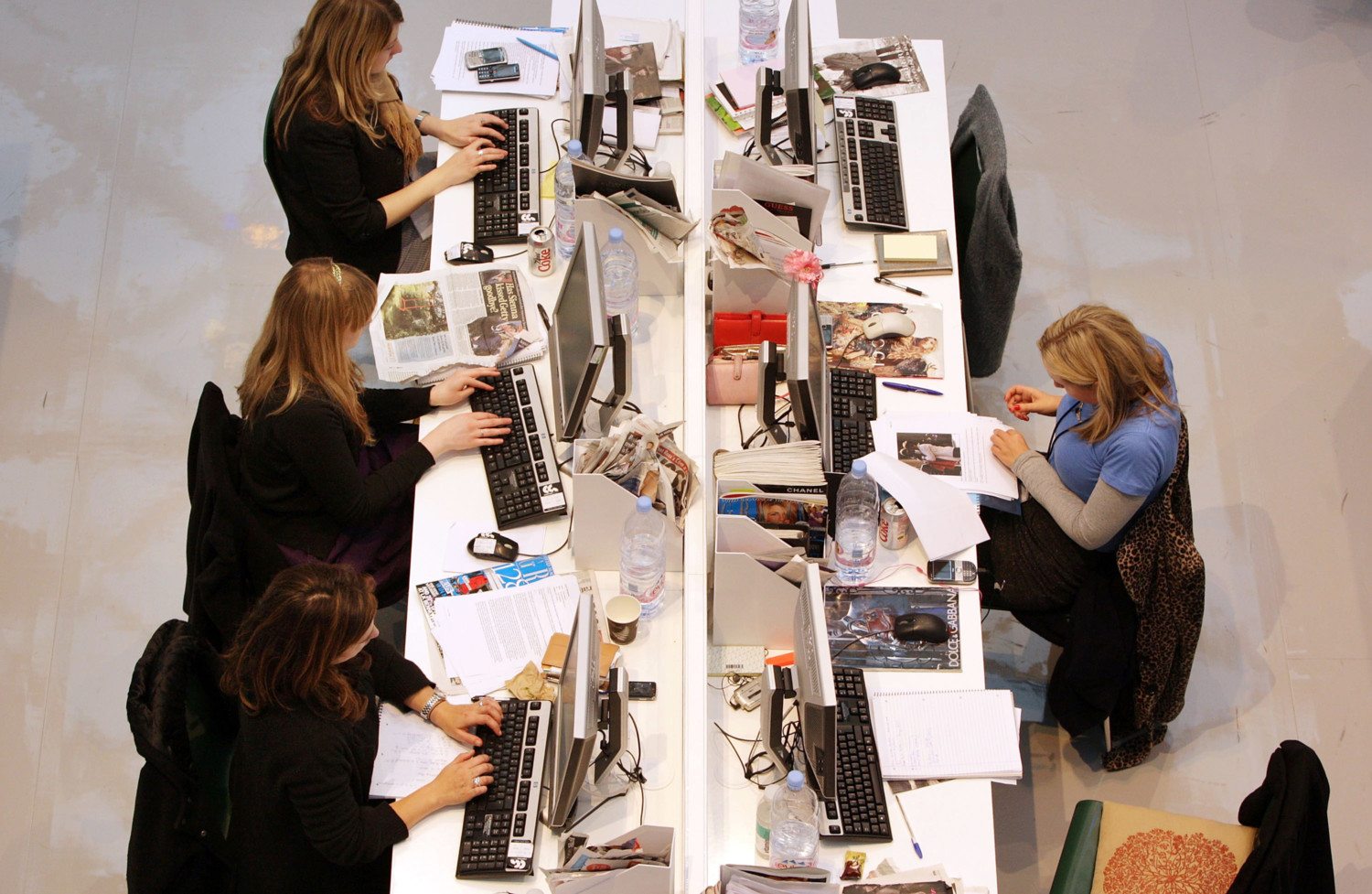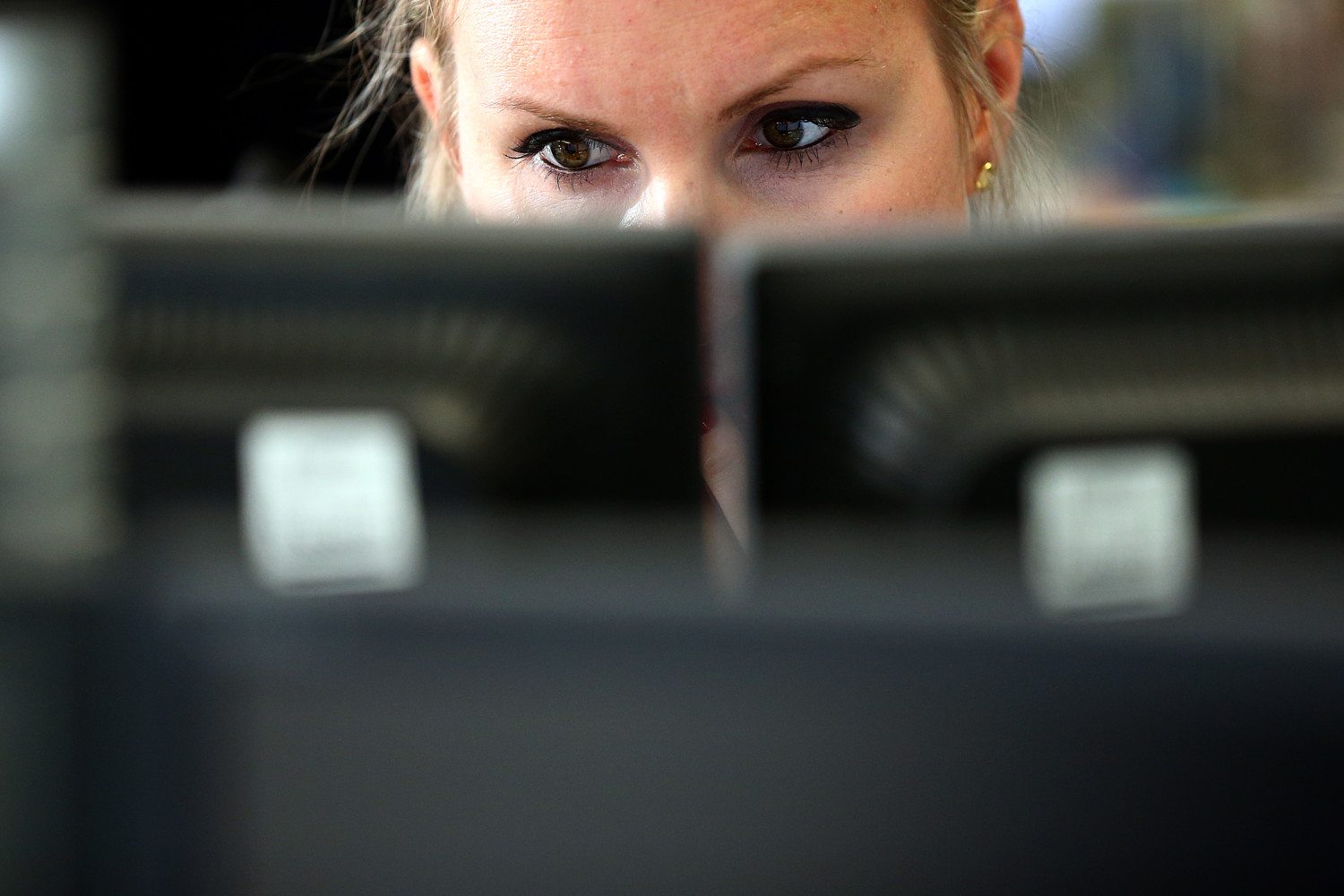Well, it turns out, there are scientific reasons so many of us feel zonked after sitting at a desk all day. Doctors can sum up how you’re feeling in two simple words: mental fatigue.
Sure, maybe the tired feeling you have after a long day at the office isn’t exactly the same thing you experience after exercising, but from an energy-draining standpoint, it is quite similar.

“Your muscles normally aren’t sucking a lot of oxygen out of you,” Dr. Steven Feinsilver told New York Magazine. “With exercise, they will. But the brain always takes a lot of your energy.”
The brain uses a disproportionate amount of energy compared to other organs. In fact, a full 20 percent of the oxygen we consume is used by our brains. So, even if you’re not pushing your muscles to the limit, you’re likely using a lot of brain power when you’re staring at that computer screen for hours.

What’s more, experts say that all of the thinking we do over the course of a day has similar effects on our bodies as physical exertion. That’s because our brains are always making predictions based on past experiences, and preparing for how we might need to react.
“[As we talk], you’re making predictions about how this interview is going, and as you go through each one of these mental simulations, your body is essentially getting activated to act as if it was really happening right then and there,” Dr. Curtis Reisinger, clinical psychologist at Zucker Hillside Hospital, told New York Magazine. “You don’t jump off the couch, but if you measure someone’s heart rate or their galvanic skin response, you’ll see that those physiological measures change, and that’s where the fatigue comes from.”
Stress can also cause dehydration, which can contribute to those feelings of physical exhaustion after a tough day at the office. Dr. Robert Kominiarek, a board-certified family physician in Ohio, told the Huffington Post that stress causes your adrenal glands to pump out stress hormones, and after a while, those glands become exhausted.
This is an issue because adrenal glands also help to regulate your body’s fluids. When they’re not working correctly, this will cause you to become dehydrated. And that won’t help your mood or your mental fatigue at all.
One major way to combat mental fatigue is getting up and moving around every so often and drinking plenty of water.
“The general rule of thumb is, at least every half hour or so you get up and take a walk down the hall, get a glass of water, do some knee bends,” Dr. Curtis Reisinger, clinical psychologist at Zucker Hillside Hospital, told New York Magazine. “People get dehydrated when they sit, and hydration is very, very important to how you feel.”
![a glass of water by 36521954194@N01 / [cipher] glass of water photo](https://www.simplemost.com/wp-content/uploads/2017/07/3221986177_8ce6d590ac_o_glass-of-water.jpg)
No matter what you’re working on, be sure to step away for a few minutes. As important as the project you’re working on might be, you’ll be more effective if you take care of yourself first. Your mental health is just as important as anything that’s on your to-do list, so take some time for you.
This story originally appeared on Simplemost. Checkout Simplemost for other great tips and ideas to make the most out of life.

